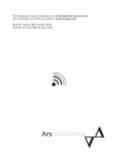CIVILIZATION PARADOX: BULGARIA – EUROPE
CIVILIZATION PARADOX: BULGARIA – EUROPE
Author(s): Miroslava KortenskaSubject(s): Politics / Political Sciences, Social Sciences
Published by: Факултет за Драмски Уметности - Скопје
Keywords: Identity; Europeanization; civilization paradoxes;
Summary/Abstract: This study examines the cultural markеrs of Bulgaria and the Balkans during the 20th century, more specifically those established as a public profile of the 21st century. The benchmark analysis applied in the study is the instrument for making a parallel between the already established cultural identities of the 20th century that have become characteristic images and emblematic events serving to transfer community values and experience between the generations and the dynamic and controversial portrait forming the profile of the survival of the Bulgarians in the first two decades of the 21st century. Along this parallel, there are, also, some other common typologies in the national fate of the Bulgarians and different forms of identity. The hypothesis outlines precisely the civilization paradox which has significant impacts upon the Bulgarian identity. The aspiration for making it up, for catching up with Europe, for civilizational belonging of Bulgaria to the Old Continent so characteristic for the 20th century is transformed in the 21st century, when Bulgaria is, actually, a member of the EU, in a plight for survival through Europe – by student and economic emigration. The paradox is irrefutable – in the 21st century, Bulgaria is in the EU, however, it is at the bottom of its rank lists – the poorest and least reformed country. The analysis of the qualitative differences in the Bulgarian manifestations denote that the Bulgarian identity in the different periods will outline the profiles of cultural memory, community bond, as well as the dialogue between the generations. It will also reveal the qualitative changes in the Europeanization project and its meaning during the 20th and the first decades of the 21st century.
Journal: Ars Academica
- Issue Year: 2020
- Issue No: 8
- Page Range: 196-205
- Page Count: 10
- Language: English

